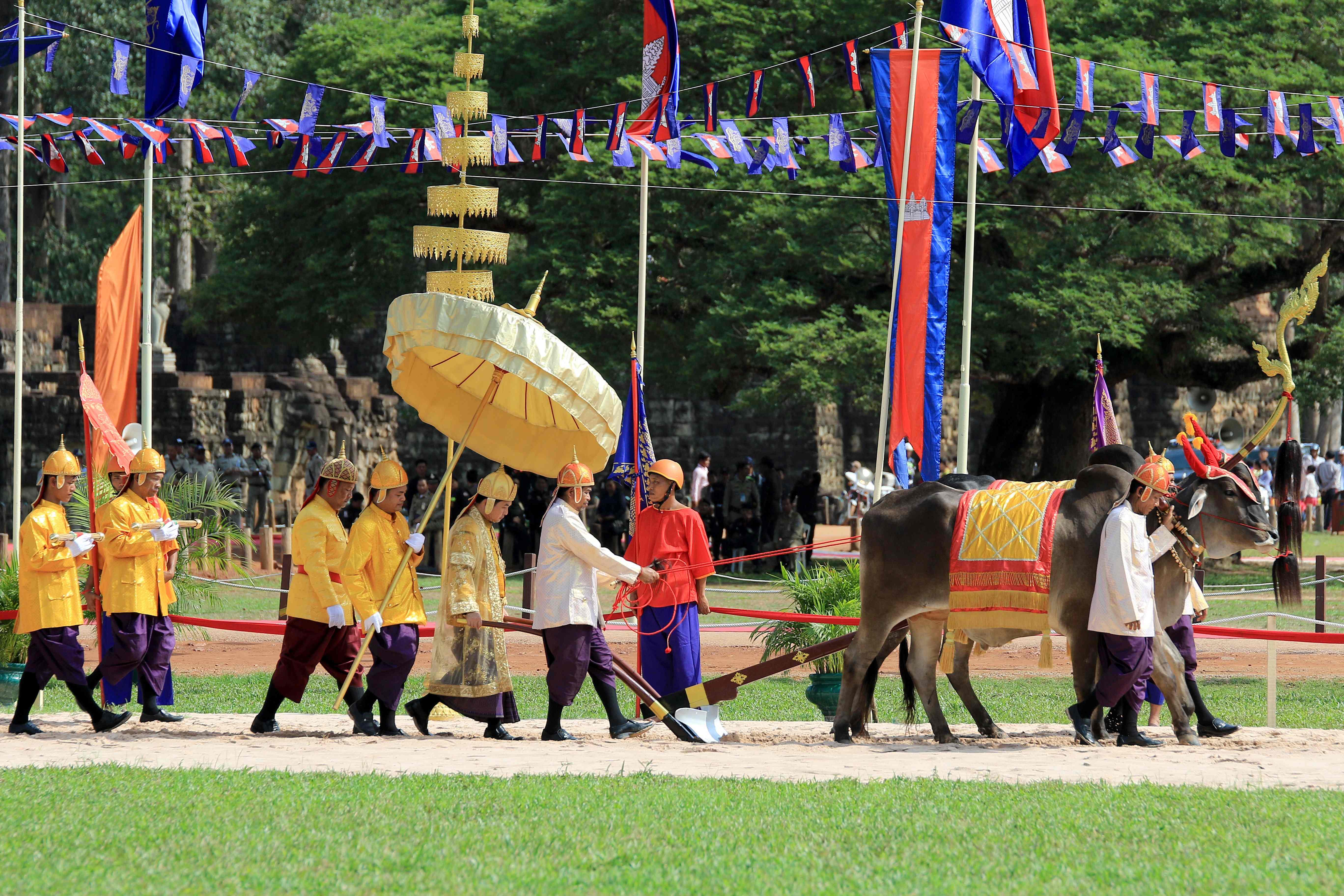
Phnom Penh: As the worst drought in half a century delays rice planting in Cambodia, a pair of oxen on Tuesday delved into rice, corn and bean bowls at an annual ploughing ceremony in an omen for good harvests for those crops in the year ahead.
Annual rains have come late to Cambodia, exacerbating the drought and forcing farmers to wait before planting this year's crop of rice. Exports of Asia's staple are expected to fall well short of the 530,000 tonnes shipped in 2015, further exacerbating a tightening rice market as drought has also hit top rice exporters India and Thailand.
Watched by Cambodia's King Norodom Sihamoni, and a crowd of thousands in the ceremonial furrow in Siem Reap province, the two cows ate 90 per cent of three out of seven snacks on offer in ornate bowls. Each year, based on the oxen's choice of crops and the amount the animals eat, the Royal Palace astrologers forecast coming harvests and pray for regular rainfall.
"The harvest of rice will be good," Brahmin priest Korng Ken, dressed in traditional white robes, announced over loud speakers at the ceremony. But rains so far this month have been insufficient for farmers to start planting rice, said Keo Vy, a spokesman for the National Centre for Disaster Management (NCDM).
Authorities have had to truck water supplies to 18 of Cambodia's 25 provinces, with some 2.5 million people affected by the drought, he said.
"We know that the harvests and exports are affected," Keo Vy said, adding that the extent of the damages was not yet known. Last year's exports of 530,000 tonnes were well below the target of 1 million tonnes, partly because of drought but also due to a lack of finance for millers and a global supply glut.
This year shipments could be 10 per cent lower again, said Kann Kunthy, chief executive of rice miller Brico, adding that farmers desperately need rain by July. Kunthy said that the industry was also concerned about the danger of floods after the drought. International forecasters see the arrival of La Nina weather pattern increasingly likely this year. That typically brings more rain to the region. "Farmers are not able to grow rice because of the drought and normally when it ends, there will be floods so this is another big concern," Kunthy said.